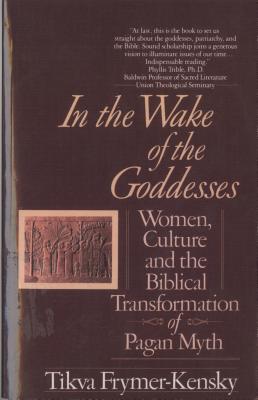In the Wake of the Goddesses

In the Wake of the Goddesses
The current return to spiritual values has spawned a surge of interest in the ancient goddess-based religions as a remedy to a long tradition of misogyny in the Western religions. But how accurate are these current representations of the goddess in polytheism? And did Judeo-Christian religion really turn its back on women? These are some of the questions that scholar and feminist Tivka Frymer-Kensky sets out to answer in this iconoclastic study of gender in religions past and present. Her argument, illustrated with fascinating accounts of myth and ritual dating back to the early days of Sumer, Assyria, and Greece, is that although polytheism did accord females an important role, the strict division between male and female actually served to keep women in a subordinate position. The goddesses were progressively "ghettoized" their sphere was eventually relegated to home and hearth, while male gods took over as patrons of wisdom and learning. This dualism was displaced by the Bible, which embraced a surprisingly egalitarian view of human nature in which women were not considered to be inherently inferior. In a provocative work of biblical scholarship on gender and sexuality, Frymer-Kensky shows that the ideal of monotheism may offer far more to us today than a return to the gender-based worldview of the goddess religions.
PRP: 125.65 Lei
Acesta este Pretul Recomandat de Producator. Pretul de vanzare al produsului este afisat mai jos.
113.08Lei
113.08Lei
125.65 LeiLivrare in 2-4 saptamani
Descrierea produsului
The current return to spiritual values has spawned a surge of interest in the ancient goddess-based religions as a remedy to a long tradition of misogyny in the Western religions. But how accurate are these current representations of the goddess in polytheism? And did Judeo-Christian religion really turn its back on women? These are some of the questions that scholar and feminist Tivka Frymer-Kensky sets out to answer in this iconoclastic study of gender in religions past and present. Her argument, illustrated with fascinating accounts of myth and ritual dating back to the early days of Sumer, Assyria, and Greece, is that although polytheism did accord females an important role, the strict division between male and female actually served to keep women in a subordinate position. The goddesses were progressively "ghettoized" their sphere was eventually relegated to home and hearth, while male gods took over as patrons of wisdom and learning. This dualism was displaced by the Bible, which embraced a surprisingly egalitarian view of human nature in which women were not considered to be inherently inferior. In a provocative work of biblical scholarship on gender and sexuality, Frymer-Kensky shows that the ideal of monotheism may offer far more to us today than a return to the gender-based worldview of the goddess religions.
Detaliile produsului








